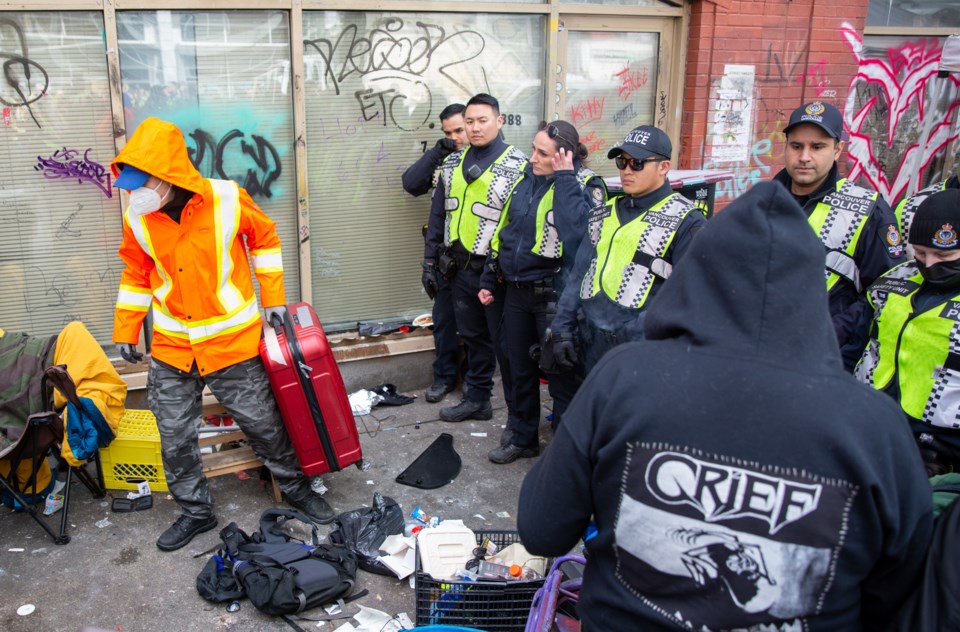So what made news at Vancouver city hall in 2023?
Short answer: Lots of stuff.
Longer answer: Keep reading.
A few paragraphs below is a chronological list of the year that was on the civic affairs beat, with one news story highlighted from each month.
The choice of each story is not meant to disregard or dismiss the importance of the couple hundred other city-related stories reported on by Glacier Media over the past 12 months.
You can still reread or learn about the , firefighters projecting an overdose before year’s end, the opening of the city’s first increased , the controversy around the and Mayor Ken Sim announcing he will seek by clicking on the highlighted words in this long run-on sentence you just read.
The Insite supervised injection site also of operation.
Vancouver Fire Rescue Services became the first department in sa国际传媒 to add to its fleet.
And, sadly, former city councillor and community activist, died.
Thanks for reading and happy holidays.
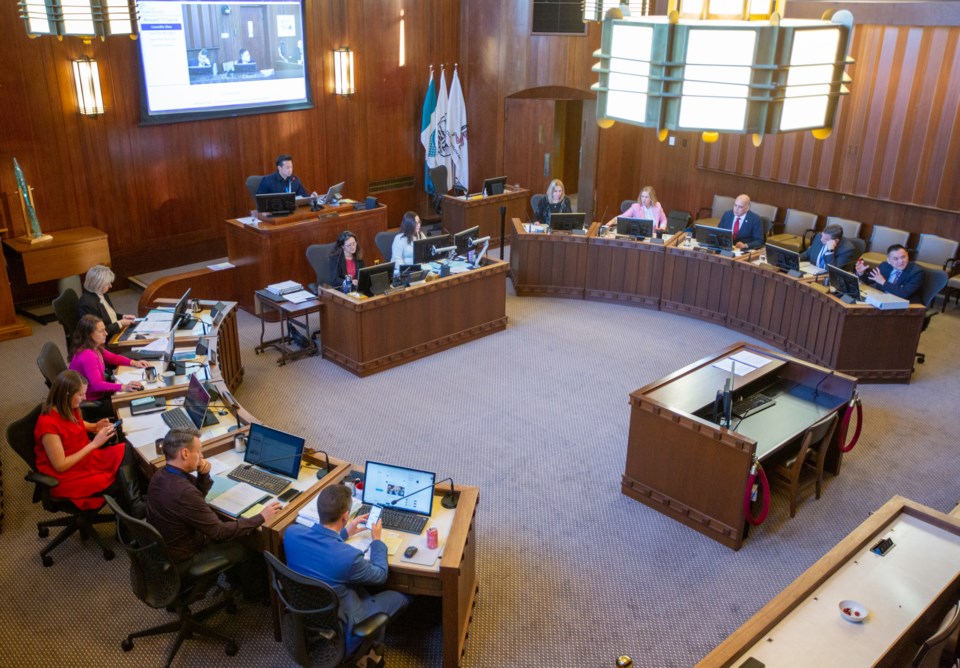
January
Mayor Ken Sim and Vancouver’s 10 city councillors began 2023 with a — 7.3 per cent, according to information supplied to Glacier Media from the City of Vancouver’s communications department.
The increase was almost double last year’s 3.8 per cent raise and significantly higher than the boost in 2021 (0.3 per cent), 2020 (2.3 per cent) and 2019 (2.7 per cent).
Council did not formally or publicly approve the raise because it was set in motion several years ago by a previous council after an independent panel determined annual increases were warranted based on salaries of other Canadian councillors.
The boost in pay took effect Jan. 1 and means Sim’s annual salary — which he only began receiving after he was sworn in Nov. 7, 2022 — jumped from the $185,594 allotted for the mayor last year to $199,143 this year.
This year, all 10 councillors will earn $98,585. That salary does not include expense allowances or compensation related to board member work at Metro Vancouver.
Councillors also receive pay for duties as deputy mayor and duty councillor (monthly salary was $3,402 for both in 2022) and a monthly salary of $1,237 as acting mayor, according to 2022 compensation figures.
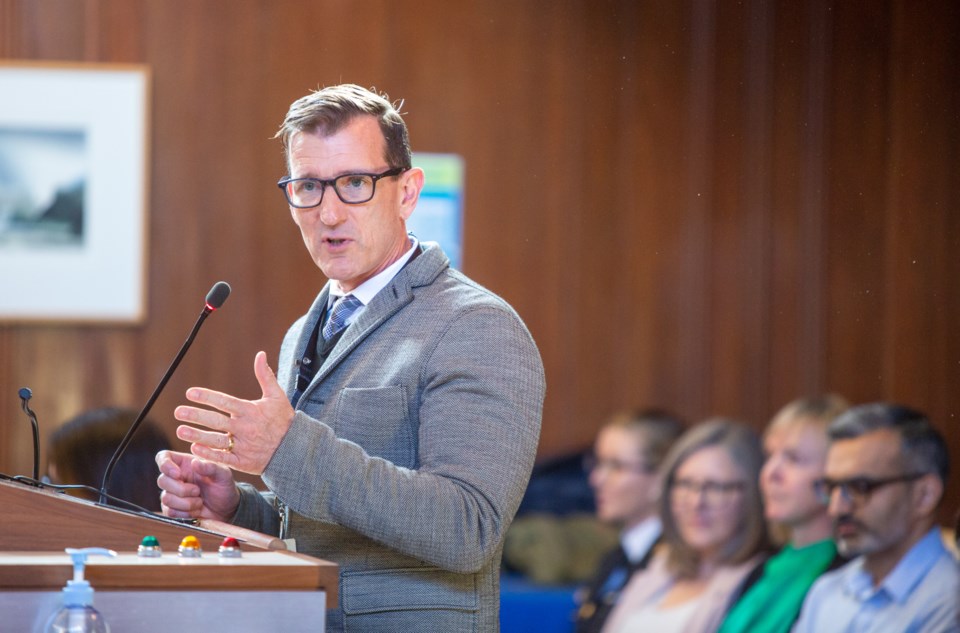
February
Vancouver council was unanimous in approving an unprecedented city-funded plan that allowed Vancouver Coastal Health (VCH) to begin and expand services to respond to people living with a mental illness.
The multi-pronged initiative will cost $2.8 million this year and increase to $8 million next year, with the long-term goal to have 100 mental health workers devoted to addressing what experts have described as an ongoing crisis that worsened during the pandemic.
“It’s a pretty big day here today — this is awesome,” said Mayor Ken Sim after his seven ABC Vancouver colleagues along with Green party councillors Pete Fry and Adriane Carr, and OneCity’s Christine Boyle voted 11-0 to support the plan.
(Note: As of October, had been filled in the city.)
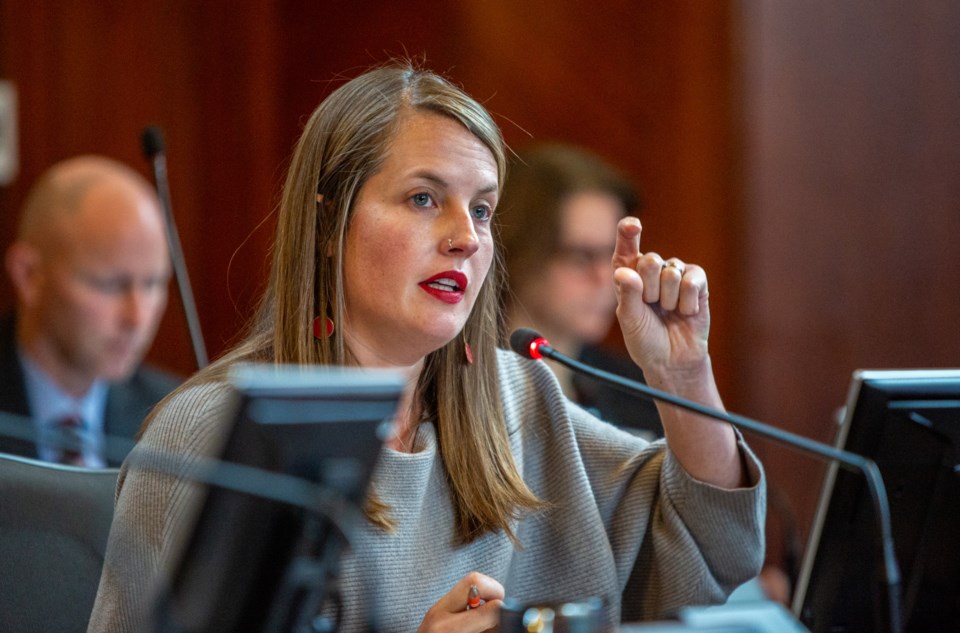
March
Three opposition city councillors, labour groups and an organization that certifies employers who pay a living wage of $24.08 per hour in sa国际传媒 made by a majority of Vancouver council to scrap the city's living wage policy.
OneCity Coun. Christine Boyle issued a statement to announce that council held an in-camera meeting regarding the city's living wage policy and that she voted to continue supporting it.
The vote occurred Jan. 31, but councillors had to legally wait until March 2 to disclose how they voted.
Green Party Coun. Pete Fry announced on Twitter that he and party member Adriane Carr also supported the policy, which has been in place since 2017.
"This is an unacceptable decision," Boyle said. "It gets more expensive to live in this city every day. We should be figuring out how to pay working people enough to live here, not making it harder and harder for them to make ends meet."
Boyle said she couldn't say which councillors or whether Mayor Ken Sim voted for or against keeping the policy. Sim and his ABC Vancouver party hold eight of the 11 seats on city council and did not respond to Glacier Media’s emails for comment.
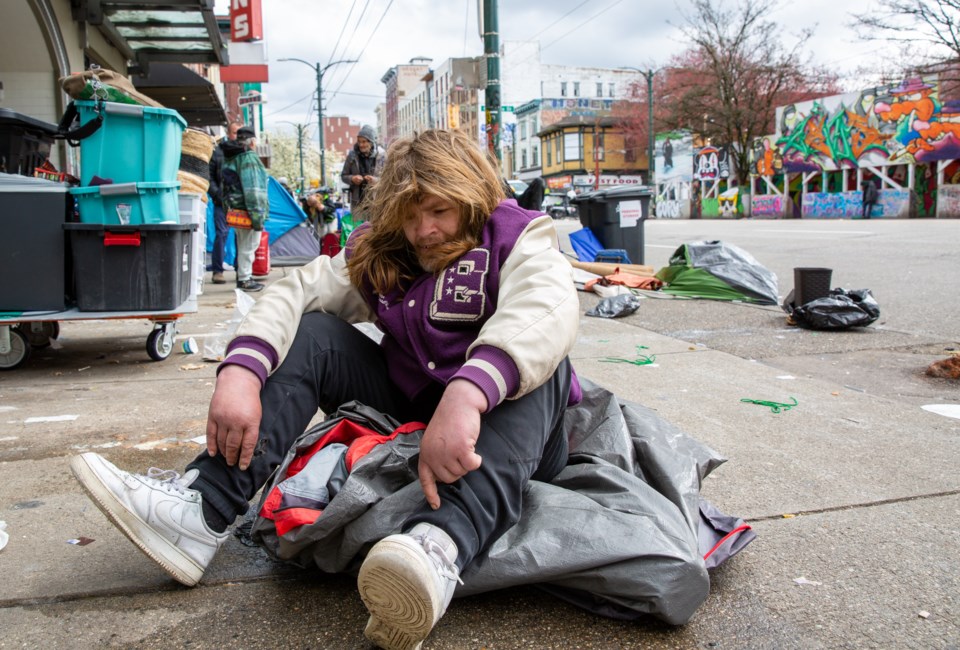
April
A to clear the homeless encampment on East Hastings Street was still underway on the late afternoon of April 5 as dozens of police officers slowly moved a crowd of protesters up the strip and away from tent-occupied sidewalks.
The operation began in the morning, with the two-block stretch of East Hastings between Main and Carrall streets shut down to traffic to allow city crews to work with outreach workers and police to remove tents and structures.
“Things have reached a turning point in the encampment zone,” said Mayor Ken Sim at a morning news conference from city hall, where he was joined by Fire Chief Karen Fry, Police Chief Adam Palmer and city manager Paul Mochrie.
Every day, the mayor said, city officials are hearing “new and sometimes horrific stories” regarding theft, vandalism and violence against women, many of them Indigenous.
Jason Rondeau was packing up his tent outside the Lux Hotel on East Hastings before it could be removed by city crews. He said has lived on the strip for about a year after being evicted from a single-room-occupancy hotel.
He wasn’t offered shelter, he said, before pointing to spots along the strip where he had pitched his tent.
“I've been over there and over there and over here, just moving around kind of thing because this isn't the first time they told us to get our shit and move,” Rondeau said. “They just tell us — go, leave.”
Rondeau said he will wait a couple of days before returning to the sidewalk, just like he and others have done after previous sweeps. He said he feels safer on the street than he does in a hotel, which are often in poor condition and unsafe.
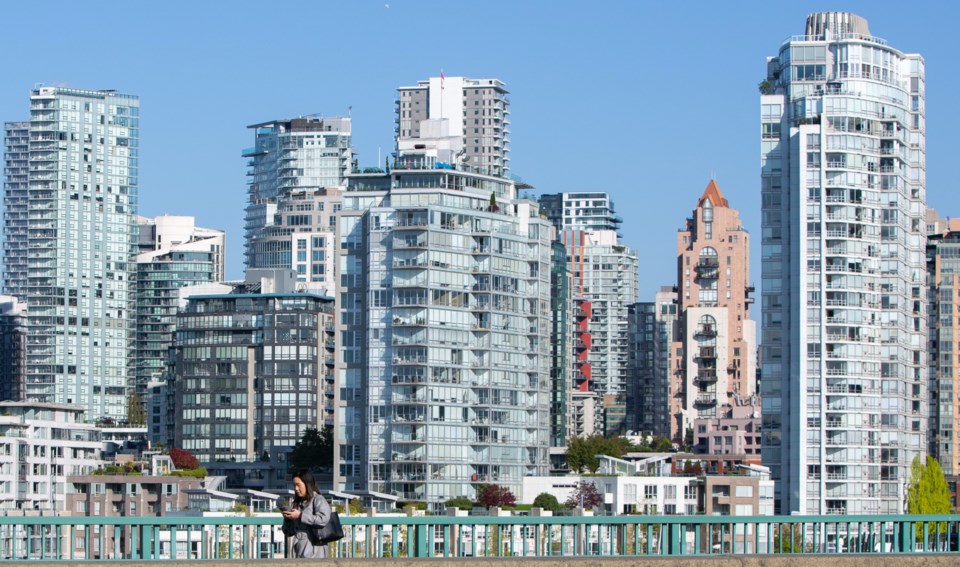
May
Vancouver city council voted 7-3 to that has already been paid or was to be collected under the empty homes tax and related to 60 new unsold condominium units.
The move was initiated by ABC Vancouver Coun. Mike Klassen, who said charging developers a tax on unsold inventory is “counterintuitive to our quest for more housing attainability” in the city.
“We know that any additional costs associated by development are passed on to renters and homebuyers, not to the developer,” said Klassen, who got the full support of his six ABC Vancouver colleagues present at the meeting.
The $3.8 million was the amount of tax levied against a small number of developers connected to 60 unsold condominium units that were vacant in 2022. The city’s communications department said in an email that developers already paid $2.4 million of the $3.8 million.
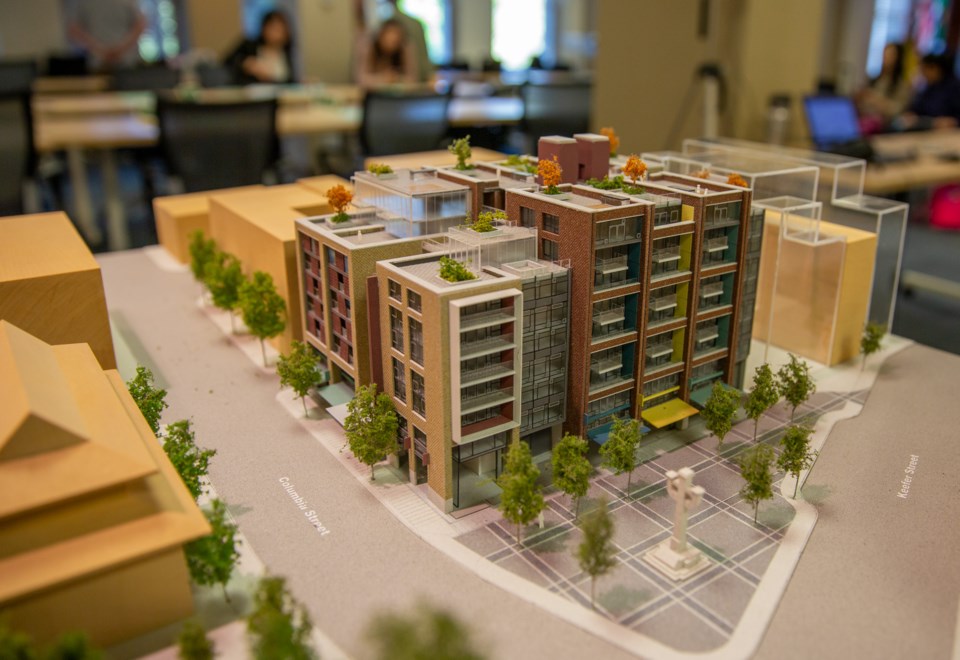
June
A Chinatown condo proposal that was previously rejected in 2017 by Vancouver city council and the development permit board was to proceed with a 111-unit building in the heart of the historic community.
The unanimous vote by the three-member permit board now allows Beedie (Keefer Street) Holdings Ltd. to turn the piece of property it acquired at 105 Keefer St. in 2013 into a nine-storey building.
“We're obviously pleased with the [development permit] board decision,” said Rob Fiorvento, managing partner of Beedie, who was at city hall to hear the vote. “We look forward to working with city staff and the community groups to move this project forward.”
The vote clearly disappointed the crowd of organizers and residents of Chinatown gathered at city hall, many of them seniors who spoke to the board over the two days of hearings leading up to Monday’s vote.
Jade Ho of the Vancouver Tenants Union was among a group of young people who organized Chinatown residents to push back against Beedie’s proposal. Ho was at city hall when the board made its decision.
“I don't think disappointment describes it,” said Ho, who helped lead rallies in Chinatown and outside city hall in the lead-up to the vote. “We definitely condemn this decision, but we are not going to be disheartened.”
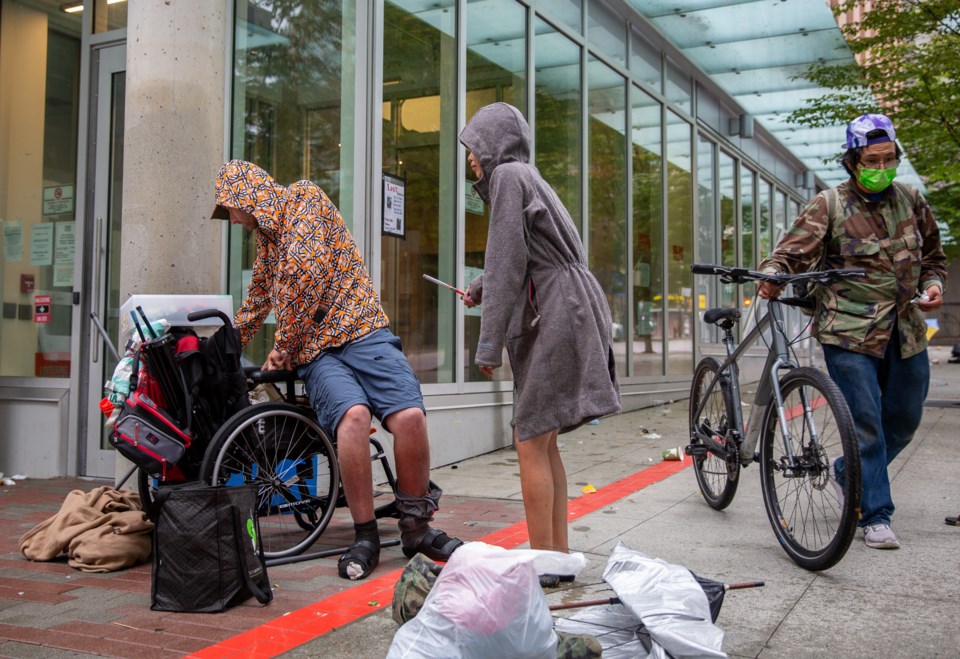
July
The City of Vancouver informed Vancouver Coastal Health (VCH) that it on the overdose prevention site in the 1100-block Seymour Street beyond March 2024.
Sandra Singh, the city’s general manager of arts, culture and community services, told Miranda Compton, VCH’s executive director of substance use and priority populations, in a July 19 letter that the location “has proven unviable for sustained operations.”
Singh said in an email to Glacier Media that the city has been “challenged to manage the extensive congregation outside of this location.” Many of the people who gather at the site, she said, are not clients of the four-booth drug injection facility or associated with it.
“The outdoor socialization draws many others to the area, the cumulative effect resulting in significant operating challenges for current and neighbouring operations and services,” she said, adding that staff will provide any support needed to VCH to set up another facility in the area.
The site, which is located in a highrise near Emery Barnes Park, was controversial prior to it , with more than 100 people addressing the previous council over concerns related to street disorder and public safety.
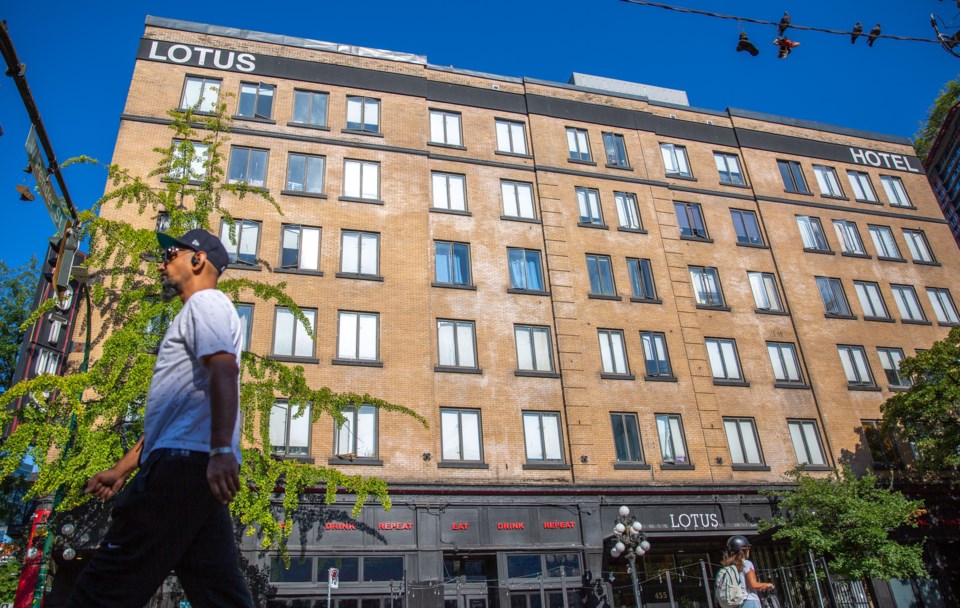
August
Longtime low-income tenants of a 109-unit single-room-occupancy hotel in the Downtown Eastside say they are being repeatedly asked by a property management company to in exchange for a payout.
The requests have come via phone calls, emails, text messages and company representatives knocking on tenants’ doors at the Lotus Hotel at 455 Abbott St., according to three residents, who requested their names not be published for fear of reprisal from the owner.
“I’m scared, I’m worried, I don’t want to end up on the street,” said one man, who is in his 60s and has lived in the hotel for 22 years and pays less than $650 per month.
In the past year, he said, he has been contacted at least four times from Dennison Property Management on behalf of Lotus owner Forum Asset Management, a Toronto-based real estate investment firm.
Greg Spafford, Forum’s managing director of real estate management and head of the firm's real estate income and impact fund, said in an email that contact made with tenants about buyouts is “misrepresented by some tenants and there are others who have welcomed our approach.”
He said the company, which purchased the Lotus a year and a half ago, will check in with tenants “two to three times” per year about buyouts. He described the offers as “generous,” which he elaborated on in an interview.
“We have reached agreement with half a dozen tenants so far over the past year, where they relocated in Vancouver or elsewhere, and it's been really good for them,” he said, noting one tenant moved in with his brother.
“It’s a life-changing time for him. He has some money to travel, he's moving in with family, which is where he wanted to go. Other people are moving into assisted living and that money is helpful.”
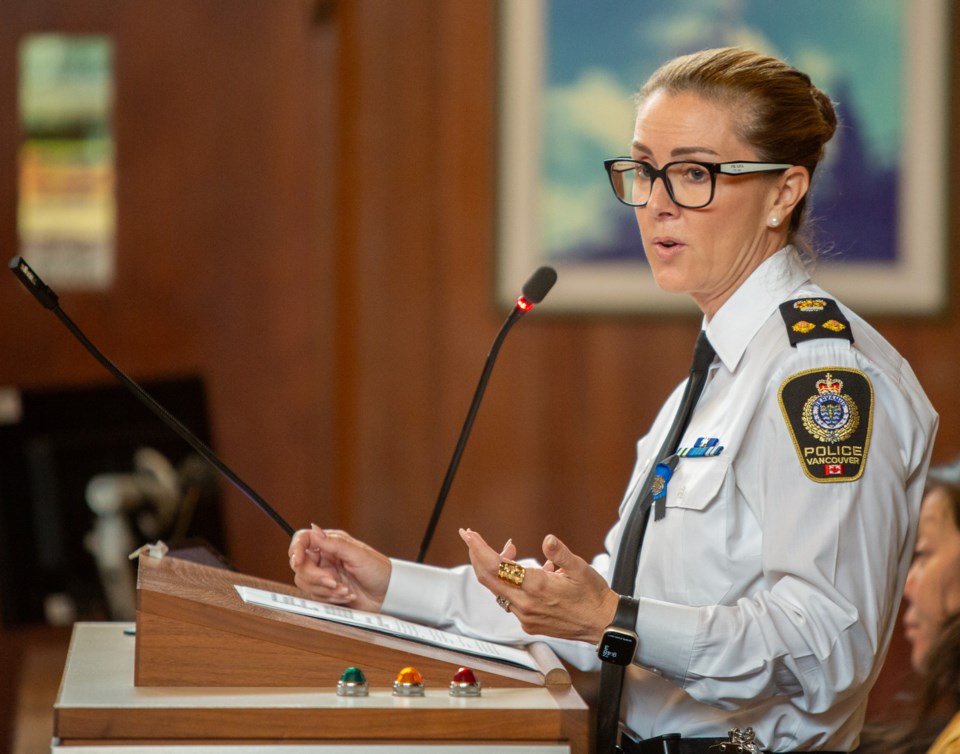
September
Vancouver police officers
The return of what the police department described as a “reimagined” school liaison officer (SLO) program came after the school board scrapped the old version in May 2021.
The cancellation was based on feedback from Black and Indigenous students who felt threatened by officers’ presence — concerns that were reflected in the Argyle consultant’s report released in March 2021.
“Students who self-identified as Black and Indigenous were more likely to mention police as symbols of larger societal concerns, including systemic racism, oppression, and abuses of power,” said the report, which heard from more than 1,900 participants via interviews, meetings, surveys, written statements and focus groups.
“These comments often reflected personal, lived experience with [school liaison officers] and policing in their communities.”
A new board led by ABC Vancouver trustees voted in November 2022 to put officers back in schools.
Deputy Chief Fiona Wilson told the police board that since 2017, calls to schools “had continually decreased.” That pattern changed in 2022 when the schools were without officers, she said, noting calls overall increased 16 per cent.
“And they're not small numbers,” she said. “They went from 414 calls to 480. Violent crime increased 19 per cent, assaults increased 27 per cent.”
The deputy chief said VPD records show 7,000 “encounters” between school liaison officers and young people, between 2015 and 2019.
“Of these encounters, only 224 cases resulted in any form of recommendation within the Youth Criminal Justice Act, and 197 of these were successfully resolved through alternative measures. So in real numbers, that a total of 27,” she said.
October
The number of people in Metro Vancouver identified as homeless during a in March totalled 4,821 — a 32 per cent increase over the last regional count in March 2020 when 3,634 were recorded without a home.
A report released by the Homelessness Services Association of BC indicated that 1,461 of the people counted in 11 cities during the 24-hour period were considered unsheltered, an increase of 432 over the count in 2020.
“We know this is an undercount,” said Stephen D’Souza, executive director of the Homelessness Services Association of BC.
“Please see this as a snapshot or a baseline of what homelessness looks like in our community. We know that we don't capture all populations equally, and there are underrepresented groups within our data set.”
While Vancouver (2,420) and Surrey (1,060) had the most homeless, the nine other cities in the region all saw increases in homelessness, including the Tri-Cities, where numbers almost doubled from 86 in 2020 to 160 in 2023.
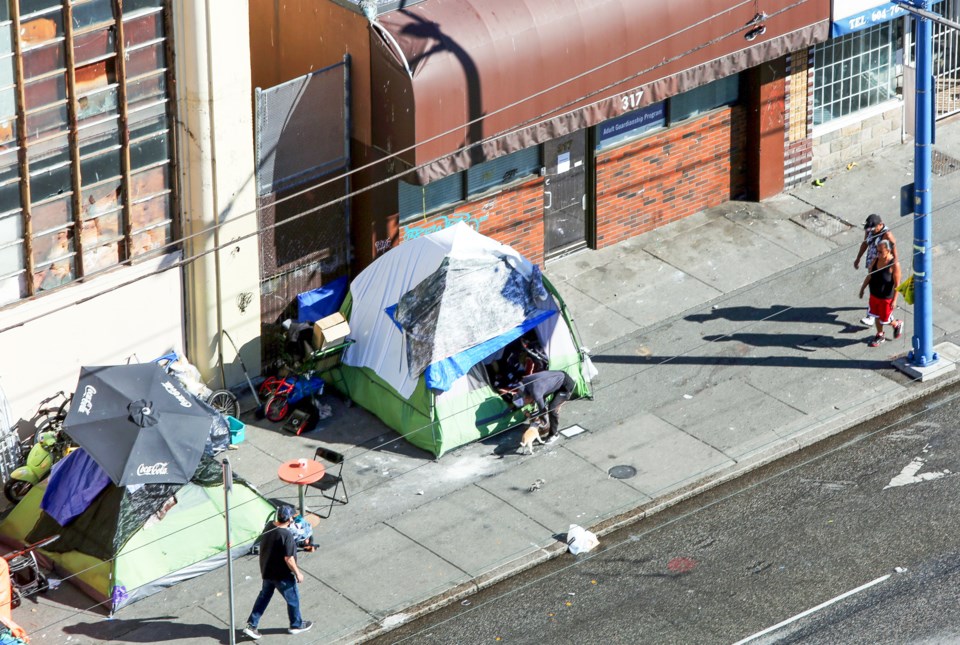
November
Twelve supportive housing providers operating across the Lower Mainland, Sunshine Coast and Vancouver Island say they are collectively from BC Housing and that some operators are at risk of insolvency.
The 12 non-profits don’t specifically identify what the owed money is dedicated to but emphasized in an Oct. 13 letter to Deputy Housing Minister Teri Collins the high staff demands and costs of responding to the homelessness crisis.
“Our organizations do not currently have the capacity to respond to this crisis,” said the letter obtained by Glacier Media.
“For years, our organizational capacity has been chronically underfunded, and this lack of organizational capacity now leaves us struggling to respond effectively.”
The organizations say the debt — “well over $20 million” — is threatening their solvency and that in the coming months many of them will not be able to meet their payroll obligations. The letter doesn’t identify which organizations are most at risk.
A representative from the Ministry of Housing's communications team said in an email that "we are working together with these organizations and with BC Housing to address any and all concerns that are not yet resolved."
"BC Housing staff is seeking further details from non-profit providers on cost impacts for retroactive and current wage increases, as well as inflation impacts, and resource constraint costs," the representative said.
"BC Housing is also working to expedite funding adjustments required to address current and retroactive funding pressures."
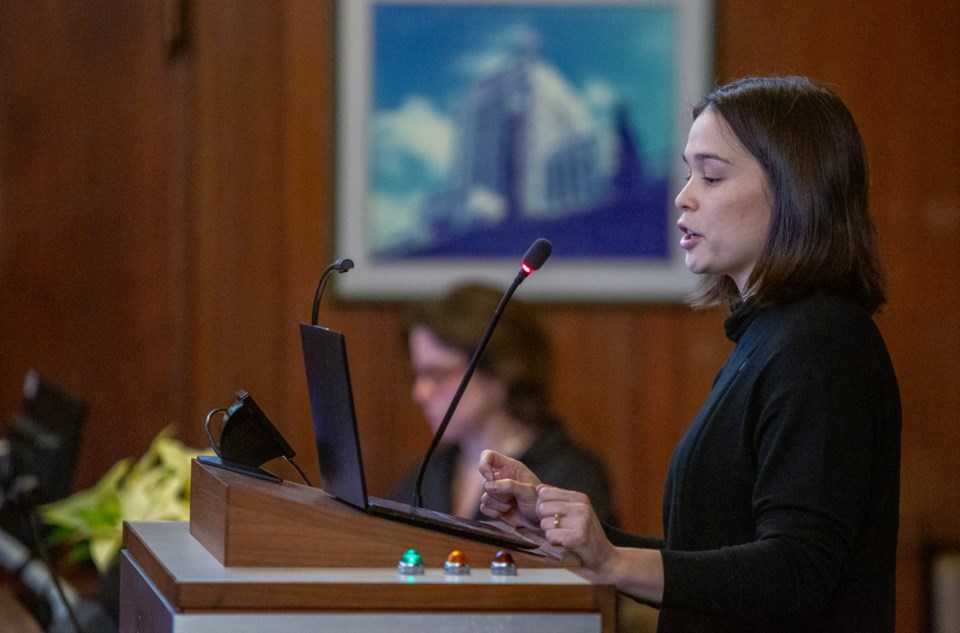
December
The ABC Vancouver majority at city hall voted to begin the process to
The vote came after Mayor Ken Sim introduced a motion to request the sa国际传媒 government make necessary changes to the Vancouver Charter — a provincial statute — to begin the process to dissolve the board and transfer legal powers to city council.
“In recent years, it has become abundantly clear, given the poor state of Vancouver’s parks, recreation services and infrastructure that a fundamental change in the governance structure is not only needed, it is the only viable path forward to efficient and effective parks and recreation services for the people of Vancouver,” said the motion, obtained by Glacier Media.
The vote came after 162 people registered to speak to council, with most against the mayor’s motion, including three park commissioners from Sim’s own party — Brennan Bastyovanszky, Scott Jensen and Laura Christensen.
Christensen said when she agreed to run with ABC in the summer of 2022, the party was “very clear that Ken was the park board.” She said she was told many times during the party’s campaign that the party line was that “we are going to fix the park board.”
“This is what I told every person who asked me while I was knocking on hundreds of doors and attending community events,” she said.
“Because of this, I absolutely do not believe that Ken Sim has the mandate to abolish the park board.”
sa国际传媒 Municipal Affairs Minister Anne Kang has since announced in an emailed statement:
“We respect the decision of Vancouver city council on the future of the park board. The Ministry of Municipal Affairs will begin work with the city to move forward on this significant change to governance in Vancouver.
“There are a number of items that need to be addressed, including land ownership and the future of the workers at the park board, and we need to make sure First Nations are consulted. We are asking the City of Vancouver to provide the province with a transition plan to address these considerations so we can move forward together.”
